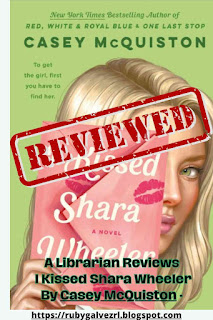The Allure of the Narrative
Casey McQuiston's "I Kissed Shara Wheeler" is a compelling read that delves into the complexities of young love, identity, and the pursuit of self-discovery. The narrative is imbued with a sense of urgency and emotional depth that captures the reader's attention from the get-go. McQuiston's storytelling prowess shines through, making it a standout in the young adult romance genre.
One of the most commendable aspects of the book is its nuanced portrayal of characters. Shara Wheeler is not just another love interest; she's a multi-dimensional character with her own dreams, fears, and complexities. This adds a layer of realism to the story, making it relatable to a broad spectrum of readers.
The Challenges: A Double-Edged Sword
However, the book is not without its challenges. The pacing can be a bit uneven, with some sections dragging on longer than necessary. This can be particularly taxing for readers who prefer a more streamlined narrative. Additionally, the book employs a series of flashbacks that, while enriching the story, can sometimes disrupt the flow and make it harder to follow.
Real-Life Relevance
What sets "I Kissed Shara Wheeler" apart is its relevance to real-life situations. The story tackles issues like identity, societal expectations, and the complexities of young love, which resonate with many readers. It serves as a mirror reflecting the trials and tribulations that come with navigating relationships and personal growth during one's formative years.
Comparative Analysis
When compared to other books in its niche, such as "To All the Boys I've Loved Before" by Jenny Han or "Simon vs. the Homo Sapiens Agenda" by Becky Albertalli, "I Kissed Shara Wheeler" holds its own. While the aforementioned titles focus more on the lighter aspects of young love, McQuiston's work delves deeper into the emotional and psychological facets of relationships. This gives it a unique edge, making it a must-read for those who appreciate depth in their romantic reads.
Final Thoughts
In conclusion, "I Kissed Shara Wheeler" is a compelling narrative that offers a balanced mix of romance, drama, and real-life relevance. Its strengths lie in its well-developed characters and emotional depth, although it does suffer from some pacing issues and narrative complexities. Nonetheless, it's a book that leaves a lasting impression, making it a worthwhile addition to the young adult romance canon.
I hope you find this review insightful and engaging. Whether you're a college student looking for a relatable read or a parent seeking to understand the literary tastes of the younger generation, "I Kissed Shara Wheeler" offers something for everyone.
